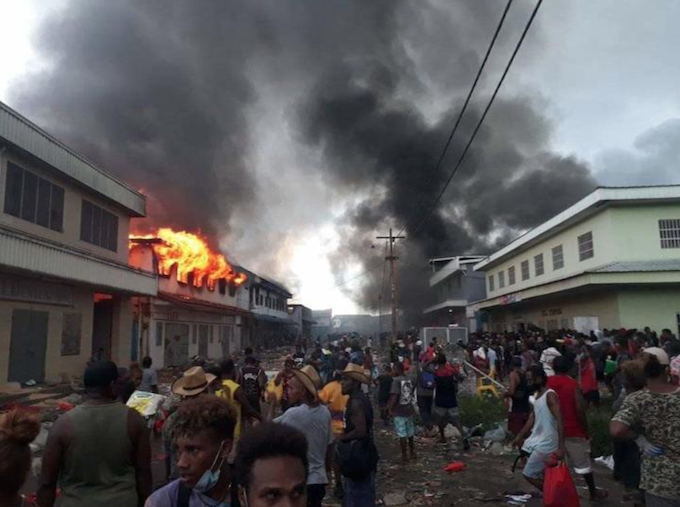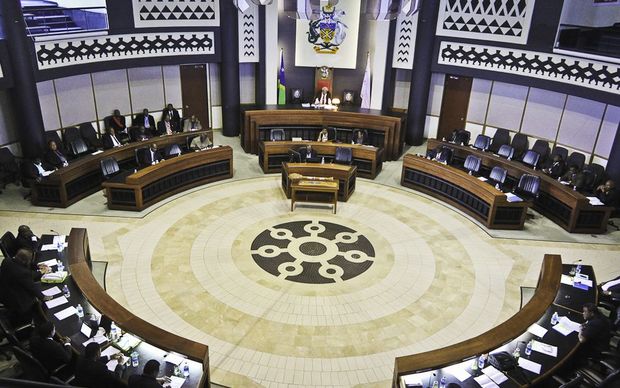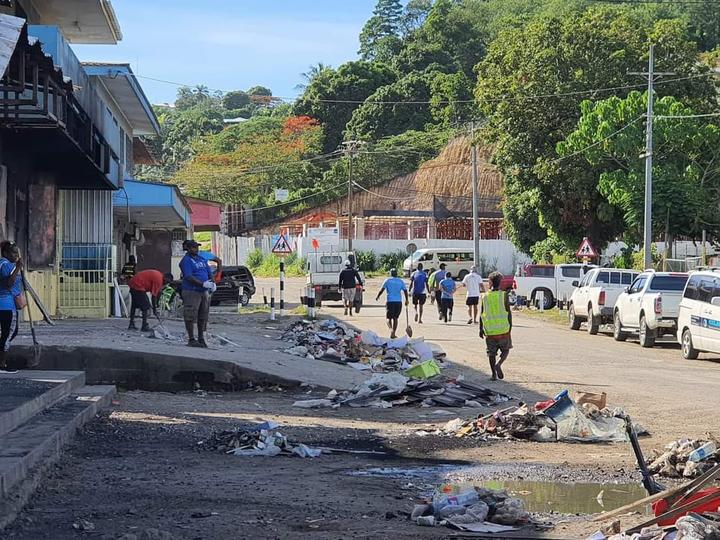
Fiji is the latest regional country to announce it is sending security forces to Solomon Islands where major unrest rocked the capital.
Days of rioting in Honiara by mobs who torched buildings and looted shops prompted the government to call for outside help.
In what’s shaping up as a Pacific regional response, Fiji yesterday deployed 50 soldiers to help keep the peace in Honiara, with 120 more troops on standby.
They follow last week’s deployment of more than 100 Australian defence force and police personnel, as well as 37 Papua New Guinea police and correctional service forces.
Canberra has been playing a co-ordinating role with the other Pacific nations. New Zealand is also part of the conversation, although its role appears minimal at this stage.
Signs from both Australia and PNG indicate that, provisionally, their forces are expected to be in Solomon Islands no longer than a month.
The Fiji military unit is deploying as part of a reinforcement platoon embedded with the Australian contingent in Honiara.
120 troops on standby
According to the Fiji government, another 120 Fijian troops are on standby if required.
Over three days last week, many buildings were torched in Honiara’s east, particularly its Chinatown area — leaving at least three people dead.
The unrest had spiralled from a protest against Prime Minister Manasseh Sogavare last Wednesday.
By the weekend, law and order was largely restored in Honiara due to the reinforcement of local police capabilities due to the peacekeepers from Australia and Papua New Guinea.
On Monday, the Solomons Parliament met briefly — amid tight security — to pass two motions. One was for the routine extension of the State of Public Emergency in place since the start of the covid-19 pandemic.
The other was to authorise expenditure for the massive loss and damage caused by the riots — estimated at US$28 million.
Despite the resignation of four government MPs last week, and calls for him to stand down to restore control in the country, Prime Minister Manasseh Sogavare still commands a clear majority in the House.

‘Melting pot of the country’
The MP for Central Guadalcanal, Peter Shanel Agovaka, who is also Communications and Aviation Minister, said each time a group of people from outer provinces who were unhappy with the government, they tended to come to Honiara and destroy local business houses.
“I think people from other provinces should respect that as hosts of this capital we allow people of all provinces, and all denominations and all races, to come here.
“This is the melting pot of the country, and to see it in ruins like this is really very sad.”
According to Shanel, a lot of households had been affected.
“Eighty to 90 percent of Chinatown is burnt down. This is really sad, because these are innocent people,” he said.
“The way to remove a prime minister is through the parliamentary process. It’s not through the burning of businesses or private properties and looting them.”
Capital’s schools close
All schools in the Solomon Islands capital have been ordered to close early as a result of the widespread destruction caused by last week’s unrest in Honiara.
Education Secretary Dr Franco Rodie said the decision was reached after consultation with the heads of various schools and taking into consideration parents concerns for the safety of their children.
Dr Rodie said thankfully most major exit examinations had already been conducted and in class assessments will have to be taken into consideration for everyone else.
State of emergency
Forty-one out of 49 members of Parliament on Monday yesterday voted in favour of the four-month-extension, as proclaimed by the Governer-General, Sir David Vunagi.
Opposition leader Matthew Wale asked for clarification on the covid status of emergency personnel from Australia and Papua New Guinea brought in because of last week’s riots.
Health Minister Culwick Togamana said all foreign security personnel were double vaxxed and tested negative for covid-19 upon departure and again on arrival in the country.
Togamana also expressed disappointment in the poor uptake of vaccines with less than 20 percent of the population fully vaccinated.

Clean-up underway
The clean-up in Honiara is underway and church and community groups are turning up to clear the wreckage from last week’s rioting.
However, the riots have created a shortage of food and RNZ Pacific correspondent Elisabeth Osifelo said there had been long queues for the shops that were open, as well as for petrol and at ATMs while banks remain closed.
“The prices have sllightly gone up with rice and so it just depends on where the shop is,” she explained.
“I found out towards the eastern parts of Honiara because I think the shops are very limited that the prices have gone up and varying on different items as well.”
Solomon Islands police have confirmed the identity of the three bodies recovered from a building burnt in Chinatown during the violence — an adult and two children.
This article is republished under a community partnership agreement with RNZ.











































